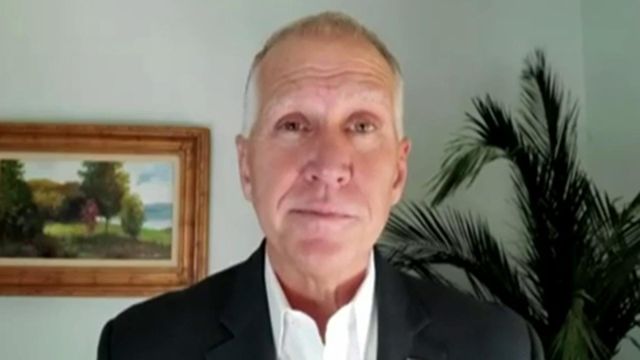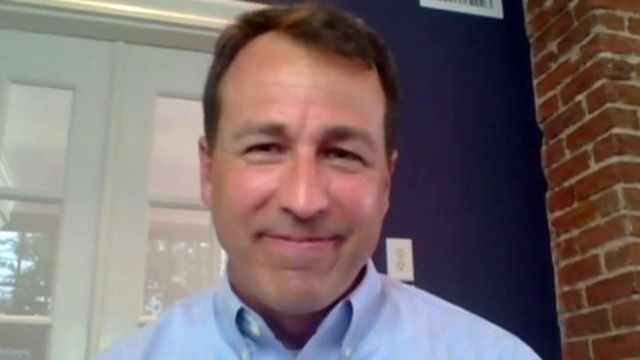Tillis, Cunningham spar over pandemic response
With fewer than 100 days until the November general elections, the race for a U.S. Senate seat from North Carolina is heating up.
Posted — UpdatedRepublican Sen. Thom Tillis and his Democratic challenger, Cal Cunningham, have been running mostly positive image ads to keep their names and priorities before voters amid a pandemic that has essentially eliminated campaign rallies, town hall meetings and other basics of "retail politics."
"It's not as ideal as being able to see people in person, to travel our state, but we're making do, and we're making sure that I'm hearing from people all over our state," Cunningham said of virtual town halls his campaign has held across North Carolina.
"We're reaching out to constituents and doing what we have to do to live with the reality that we have to socially distance," said Tillis, whose campaign has held more than 50 telephone town halls to answer questions and address constituent issues.
"We'll get our word out, and I think at the end of the day, we'll be successful on Nov. 3," Tillis said.
In addition to being a campaign consideration, the pandemic is becoming a key campaign issue.
Cunningham and Democratic interest groups have begun attacking Tillis' record as a state lawmaker and speaker of the North Carolina House, where he and other Republicans have, for years, blocked all efforts to expand Medicaid to tens of thousands of low-income adults.
In the middle of a public health crisis and an economy in which millions have lost their jobs – and employer-provided health coverage – Medicaid should be available as an option for more people, Cunningham said.
"There are a lot people who are sick and hurt and financially in dire straits right now," he said. "We need to make sure all of our people have quality, affordable health care in the midst of this pandemic."
Tillis is firing back, slamming Cunningham for tax increases and Medicaid reimbursement cuts the General Assembly approved while Cunningham was a state senator. Such actions left the state's finances in such disarray, Tillis said, that he couldn't support any Medicaid expansion because it would have created more IOUs when the state couldn't meet the promises officials had already made.
"We worked very hard to go from deficits to surpluses in Medicaid, completely changing the way we deliver Medicaid," he said.
Cunningham also is pressing for a more coherent national strategy to battle coronavirus, including more investment in testing and contact tracing, saying he hears "very deep anxieties" from families and business owners "who just don't know what tomorrow may bring."
"It's a time that demands leadership," he said, noting "core objectives" need to be identified and communicated to the public and plans and resources put in place to accomplish them.
"When we look to Washington, we have seen them fumble this response, not providing the very clear sets of plans, the resources and communicating why we all need to be doing what we're doing," he said.
Tillis noted that Congress is working on another pandemic relief package that would boost the stockpiles of protective gear, provide more money for testing, help public schools and universities with their response costs and provide support for struggling businesses and families.
The draft proposal in the Senate includes nine months of financial assistance for child care providers, $105 billion for public and higher education, $16 billion for testing and contact tracing, $6 billion for vaccine distribution and a streamlined process to forgive Paycheck Protection Program loans under $150,000, according to Tillis' office.
"We've got to have a really whole-of-America approach, which is the federal government making sure we can get the resources to the states, [and] the private sector has also stepped up," he said. "We've just got to work on all fronts. There's no one level of government that can solve this problem. We have to work together."
Related Topics
• Credits
Copyright 2024 by Capitol Broadcasting Company. All rights reserved. This material may not be published, broadcast, rewritten or redistributed.






